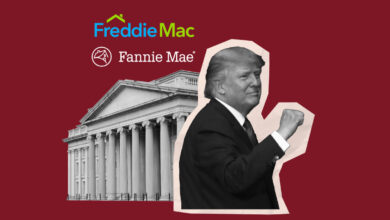SEC reverses course on mandatory arbitration in IPOs, redrawing investor protections

In a move that could reshape the landscape of investor rights and corporate liability, the SEC voted on September 17 to allow companies going public to include mandatory shareholder arbitration clauses in their governing documents.
The three to one vote, split along party lines, reversed a longstanding SEC policy that had discouraged such clauses and signalled to IPO filers that they would not be permitted.
The Commission’s policy statement clarified that companies may now condition access to public markets on investors’ agreement to resolve disputes, such as those involving securities fraud or material misstatements, through binding arbitration rather than through class action lawsuits in court. The decision does not mandate arbitration, but it provides regulatory clearance for IPO issuers to adopt such provisions, provided they are adequately disclosed in offering documents.
SEC chairman Paul Atkins framed the decision as a restoration of issuer flexibility and a reduction of unnecessary regulatory interference. ‘While many people will express views on whether a company should adopt a mandatory arbitration provision, the Commission’s role in this debate is to provide clarity that such provisions are not inconsistent with the federal securities laws,’ he said.
The policy shift was met with strong dissent from SEC commissioner Caroline Crenshaw, the lone Democrat on the panel. Crenshaw criticized the decision as a deregulatory overreach that undermines core investor protections. ‘Today the Commission finds another way to stack the deck against investors – this time primarily small, retail shareholders in public companies. We do so by opening the floodgates to something called mandatory arbitration,’ she warned, citing concerns over the loss of public transparency and precedent that come with litigated class actions.
Investor advocates and legal scholars expressed similar alarm. Ann Lipton, a corporate law professor at the University of Colorado and former class action litigator, described the move as damaging to public interest, emphasizing that arbitration becomes problematic when imposed unilaterally in situations where investors lack real bargaining power. ‘From a public policy perspective, this is horrific,’ she said. ‘It halts all development of the law and it halts all insight into what companies are really doing.’
Similarly, Oregon treasurer Elizabeth Steiner described the policy changes as ‘wrong’ and went on to accuse the SEC of pushing through the new guidance ‘without allowing time for a transparent public discussion’. She followed up with a letter calling on SEC commissioners to reject the policy change and to reject ‘this fundamental policy change [which] would hurt investors and the integrity of US markets’.
This development is not new. In 2012, private equity firm The Carlyle Group attempted to include a mandatory arbitration clause in its IPO documentation, only to back down following SEC resistance and investor backlash. Since then, the agency has held to a policy that such provisions would be grounds for denying registration effectiveness. That position was reinforced through public speeches in 2018 by then-commissioner Robert Jackson and investor advocate Rick Fleming, who both argued that class action rights are fundamental to market integrity.
By choosing to reverse that policy via a statement rather than through the more formal and participatory rulemaking process, the current SEC leadership has sidestepped what could have been a more contentious regulatory battle. Critics argue this approach reflects a lack of procedural rigor and may expose the policy to legal challenge. Regardless, the immediate effect is that IPO candidates now have a green light to include arbitration mandates in their filings, a development that is likely to be tested by at least some early adopters.
Supporters of the change argue that it is long overdue. They claim the threat of class action lawsuits – many of which are settled without trial – imposes significant costs on public companies and discourages listings. Arbitration, they argue, offers a more efficient and less adversarial process, benefiting both issuers and investors. Some also contend that arbitration provisions can be crafted with fairness in mind, including safeguards like neutral panels, cost-sharing arrangements and transparency mechanisms.
Yet institutional investors appear sceptical. CalPERS, the US’ largest public pension fund, submitted a comment earlier this year warning that arbitration clauses risk undermining accountability and the deterrent effect of shareholder litigation.
There are also open questions about enforceability. While the Federal Arbitration Act generally upholds private arbitration agreements, courts have not definitively ruled on whether mandatory arbitration of federal securities law claims – as a condition of public share ownership – is valid. That legal uncertainty could lead to future litigation, especially if investors challenge the fairness or clarity of specific provisions.
If institutional investors refuse to support IPOs that include arbitration clauses, issuers may be reluctant to adopt them despite the new regulatory freedom. At the same time, in a period of declining IPO activity and heightened litigation risk, companies may increasingly see arbitration as a type of shield.
This policy shift is indicative of a broader change in US corporate governance, where regulatory bodies are placing greater emphasis on capital formation and issuer flexibility, sometimes at the expense of traditional investor protections. Whether this represents a thoughtful improvement or a rollback of hard-won shareholder rights remains a matter of debate.
What is clear is that the SEC’s action has reignited a contentious debate between corporate autonomy and investor accountability, one that will now play out in boardrooms, courtrooms and arbitration forums across the US.
Credit: Source link






